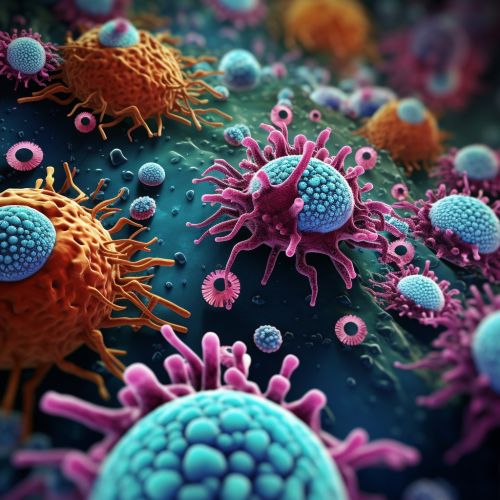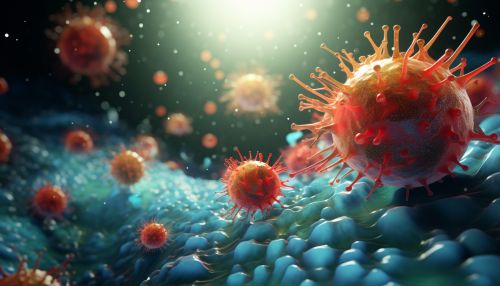Immune checkpoint inhibitor
Overview
Immune checkpoint inhibitors are a type of drug that blocks certain proteins made by some types of immune system cells, such as T cells, and some cancer cells. These proteins help keep immune responses in check and can keep T cells from killing cancer cells. When these proteins are blocked, the "brakes" on the immune system are released and T cells are able to kill cancer cells better.
Mechanism of Action
Immune checkpoint inhibitors work by blocking checkpoint proteins from binding with their partner proteins. This prevents the "off" signal from being sent, allowing the immune cells to kill cancer cells. The immune system can then mount a stronger attack against cancer.


Types of Immune Checkpoint Inhibitors
There are several types of immune checkpoint inhibitors that target different checkpoint proteins on the T cells or cancer cells. These include:
- PD-1 inhibitors: These drugs block the PD-1 protein on T cells, which can help boost the immune response against cancer cells. Examples include nivolumab (Opdivo) and pembrolizumab (Keytruda).
- PD-L1 inhibitors: These drugs block the PD-L1 protein that is often found on cancer cells. When PD-L1 is blocked, it can't send an "off" signal to the PD-1 protein on T cells. Examples include atezolizumab (Tecentriq), durvalumab (Imfinzi), and avelumab (Bavencio).
- CTLA-4 inhibitors: These drugs block the CTLA-4 protein on T cells, helping to boost the immune response. Examples include ipilimumab (Yervoy).
Uses
Immune checkpoint inhibitors have been approved to treat several types of cancer, including:
- Melanoma
- Non-small cell lung cancer
- Kidney cancer
- Bladder cancer
- Head and neck cancers
- Hodgkin lymphoma
Side Effects
Like all drugs, immune checkpoint inhibitors can cause side effects. Because these drugs work by essentially "taking the brakes off" the immune system, they can sometimes lead to the immune system attacking other parts of the body, which can lead to serious or even life-threatening problems in the lungs, intestines, liver, hormone-making glands, kidneys, or other organs.
Future Research
Research is ongoing to find new ways to use immune checkpoint inhibitors and to increase their effectiveness. This includes combining them with other types of treatments, such as targeted therapies, chemotherapy, and radiation therapy.
